Losing a friend or family member to suicide is one of the hardest things to process. People bereaved by suicide can experience a huge range of intense emotions, from shock, disbelief, confusion and sadness to rejection, anger and frustration. Sometimes people feel ashamed or guilty, as if they should have ‘done something’ to prevent the death. But it’s really important to remember that the reasons for suicide are complicated, and nobody is to blame.
Another thing to remember is that there is support out there. You don’t have to cope with this on your own, or within your family.
Getting help and support
Here are some organisations offering help and support. Because suicide can stir up complicated emotions, some people find that support groups are particularly valuable. It can be helpful to talk to people who understand what you’re going through because they’ve been there too.
- Survivors of Bereavement by Suicide (SOBS) offer a safe environment to share your feelings and get practical support through their helpline, support groups and online community.
- The Support After Suicide website offers practical support and resources to help you cope.
- Cruse Scotland offers support through their helpline, online GriefChat support service, counselling and support groups.
- Winston’s Wish helps children, teenagers and young adults (up to the age of 25) deal with grief. They offer a helpline, support by email and online chat, counselling and support.
- AtaLoss has a directory you can use to find bereavement support in your local area.
- Suicide Prevention Scotland has resources to support parents and young people.
Talking to your child about suicide
Having to tell a child that someone in your family has died is hard. But having to do this when someone has taken their own life can be even harder.
You know your child best, so it’s up to you to decide how much you want to tell them. But it’s best to be as truthful as you can, depending on their age. Here are some tips to help you.
Our page on coping with bereavement has more general advice for talking to children about a death in the family.
Tip #1: Remember children process grief in different ways
No two children are the same, and each child will have their own unique combination of feelings and ways of expressing them. But in general they may be feeling:
- numb, or acting as if nothing has happened
- abandoned or rejected by the person who has left them
- guilty that they could have ‘done something’ to stop the person dying
- afraid that other people close to them will die
- sad
- worried or embarrassed about what to say to their friends and people at school
- angry, at themselves, the person who’s left them, or you.
Tip #2: Be as honest as you can
You may be tempted to try and shield your child from the truth because it’s too painful. But children can pick up on things they hear and see, and if they don’t know what’s going on, they can sometimes make things up to fill in the gaps. It can be better for you to explain the situation to them in a careful, loving way.
Tip #3: Build up the information gradually
The children’s bereavement charity Winston’s Wish sets out five steps for telling your child about a death by suicide. These are:
- Explaining that the person has died
- Giving simple details about how they died
- Saying that they took their own life
- Providing a more detailed explanation of how the person died
- Exploring possible reasons why the person decided to kill themselves.
How slowly or quickly you go through the steps will depend on your child’s age and how well they can understand each piece of information. For example, you may want to wait a while before moving on to step 4 if your child is very young.
The Winston’s Wish website has lots of helpful advice for talking to your child about suicide and helping them cope with the situation.
Tip #4: Use language they can understand
The thought of trying to explain suicide to a young child is very daunting. So you might want to work out what you’re going to say in advance. For little ones, this could be something very simple, like saying the person ‘made themselves die because they were in a lot of pain’.
Other phrases you could use are ‘died by suicide’, ‘took their own life’, or ‘ended their life’. Try not to say ‘committed suicide’. This dates from the time when suicide was a crime, which is another reason why there can be stigma attached to suicide.
A helpline advisor (see ‘Getting help and support’ above) could help you work out what to say.
Tip #5: Be consistent
Once you’ve worked out what you’re going to say, make sure that all family and friends who’ll be supporting your child know what you’ve told them, and can use the same language.
Tip #6: Encourage them to ask questions
Make sure your child knows they can ask you about the situation. You may not know all the answers, but knowing they can come to you and the subject isn’t off limits will help your child process what’s happened.
Tip #7: Help younger children express themselves through play
Playing is one of the ways children deal with stress and cope with events in their lives. Play helps children figure out what they think about different situations and how to respond to them.
So make sure you give your child plenty of opportunity to play in an imaginative way. So you needn't worry if you see them playing games that are related to death – like ‘hospitals’ or ‘funerals’. This is just their way of processing their feelings.
Our page on helping your child through play has more advice.
Tip #8: Talk to your child's school or nursery
It’s important that staff at your child’s nursery or school understand what’s happened so they can support your child. Let them know what you’ve told your child, to keep things consistent.
Tip #9: Read together
The Scottish Book Trust have put together a list of books you and your child can read together to help them explore feelings of loss and grief. Your child may find it easier to express their feelings when they’re talking about a book rather than real life. And reading about characters who are experiencing something similar to them will help them feel less alone.
 Activities & Play
Activities & Play Behaviour
Behaviour Childcare
Childcare Development & Growing Up
Development & Growing Up Family, Friends & Relationships
Family, Friends & Relationships Feeding Your Baby
Feeding Your Baby Food & Eating
Food & Eating Health & Safety
Health & Safety Mental Health & Wellbeing
Mental Health & Wellbeing Money & Work
Money & Work Online Behaviour & Safety
Online Behaviour & Safety Pregnancy & First Days
Pregnancy & First Days School & Education
School & Education Sleep
Sleep


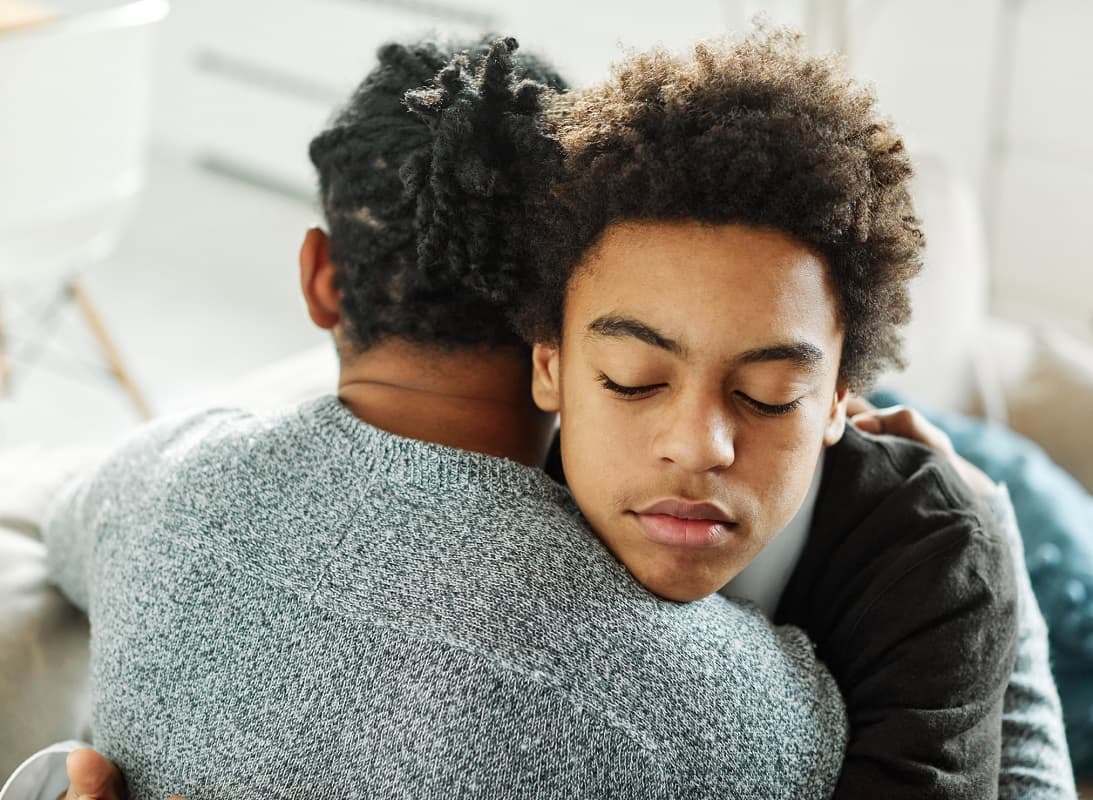

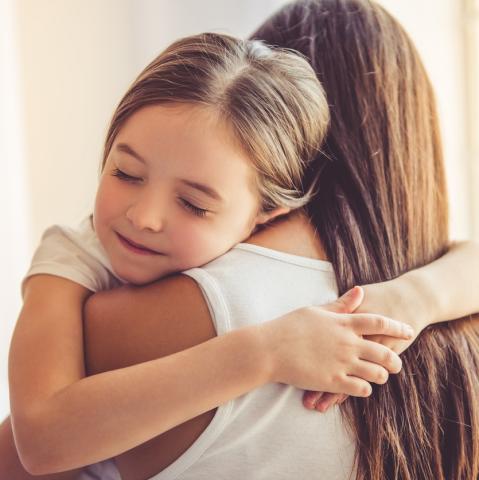
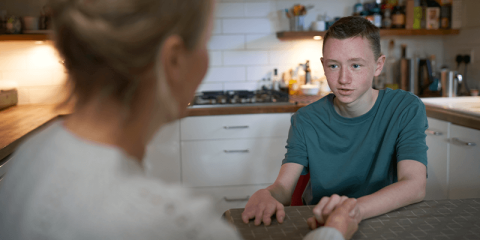
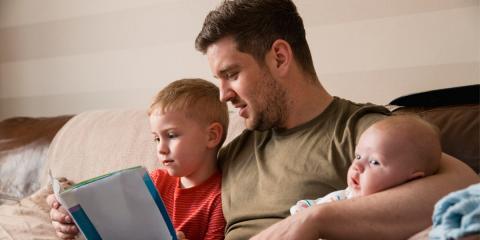


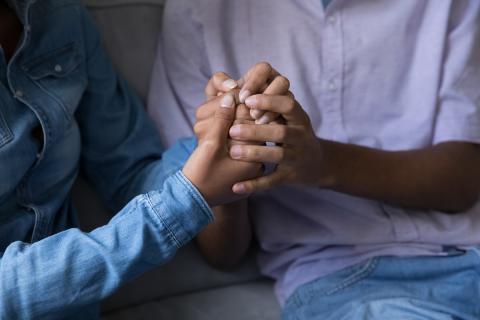
 Behaviour
Behaviour
 Sleep
Sleep